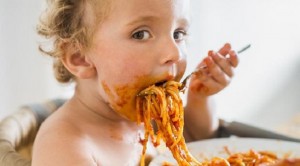Increased body weight in a child and its tendency towards obesity is an issue concerning many parents. The answer to the question “should my child be on a diet?” is neither easy nor simple.
A child must never follow a diet of deprivation that is made for adults. However, excess weight in childhood must be treated timely and correctly.

The first step to this direction is to set up a healthy diet plan and increase physical activity.
The paediatrician will give you the right guidelines, by evaluating whether a child is overweight or obese, according to the growth curves and the child’s age.
You can then visit a special nutritionist, who shall co-operate with your paediatrician and give you nutritional advice, guidelines and, if necessary, a specific diet scheme. A child must be over the age of 6 to be able to follow a diet scheme. In younger ages, diets are not advisable and if a child is overweight or obese there are other practices to follow.
● Make sure that the child eats 5 meals every day (breakfast, snack, lunch, snack, dinner).
● Increase fruit and vegetable consumption.
● Add healthy products to your kitchen. Whole wheat cereals for breakfast, raw cane or dark brown sugar instead of white sugar in sweets, oat flakes in confectionary and cooking, brown rice or wholegrain rice instead of white, whole wheat pasta, ricecakes for snack.
● Give the child water when thirsty but avoid other liquids.
● Encourage your child to get involved with sports.

An overweight child is more likely to develop psychological problems as a result of the attitude of other same-age children towards him/her. Don’t hesitate to ask the advice of a specialist in order to find the right mechanisms for offering psychological support and encouragement to your child.
Source: www.fytro.com.gr